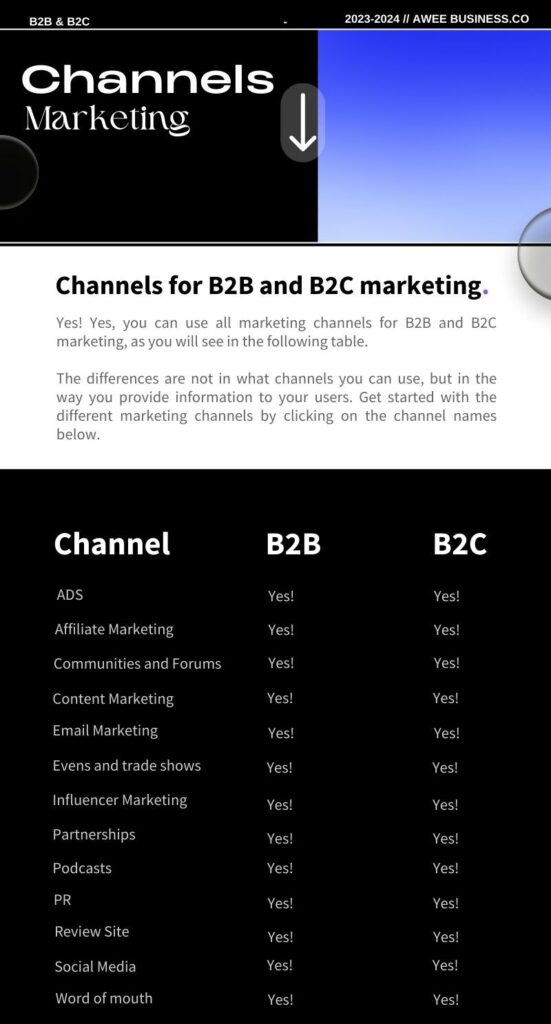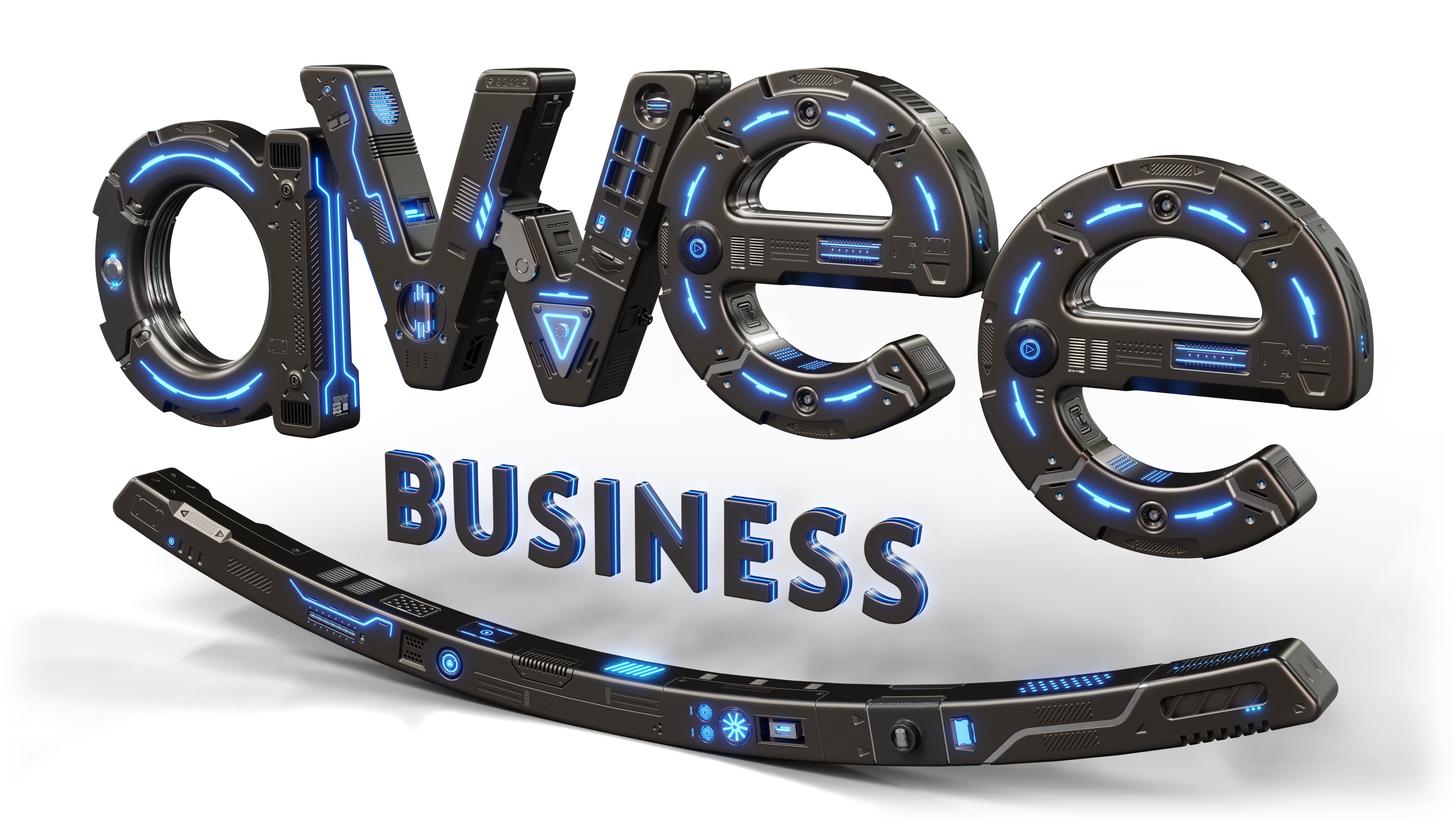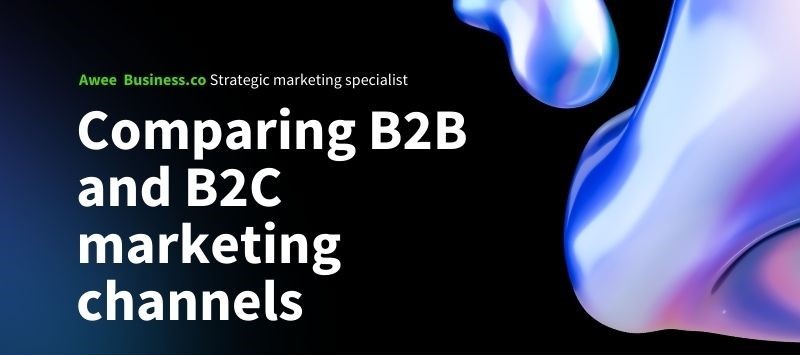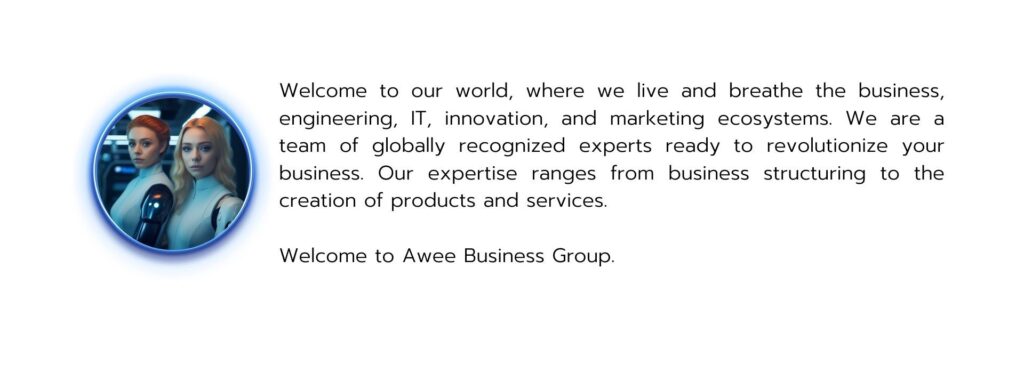Yes! Yes, you can use all marketing channels for B2B and B2C marketing, as you will see in the following table.
The differences are not in what channels you can use, but in the way you provide information to your users.
Successful marketing campaigns are like magic; they delight and win over niche audiences. In this article, we’ll dive into the essential marketing channels for B2B and B2C, revealing how each can effectively leverage their campaigns. Whether you’re a B2B or B2C merchant, it’s time to crack the code of success and stand out in any business scenario!

Infográfico preto moderno para apresentação de resultados e relatórios – 2
ADS (Paid Advertising)
B2B: Use paid ads to target specific businesses and professionals who can benefit from your products or services. Focus on platforms like LinkedIn Ads and Google Ads to reach decision-makers in companies.
B2C: Paid ads are the key to reaching your target audience on platforms like Facebook and Instagram. Use advanced targeting to target consumers based on interests, behaviors, and demographics, making your campaign highly relevant.
Affiliate Marketing (Affiliate Marketing)
B2B: Explore partnerships with top influencers and professionals in your B2B niche. They can promote your products or services to your audience, increasing your brand’s credibility and reach.
B2C: In B2C, affiliate marketing can be widely used through digital influencers and bloggers. Offer incentives and commissions to those who refer your products or services, increasing the chances of conversion.
Communities and Forums
B2B: Join online groups and forums relevant to your B2B industry. Engage in discussions and share valuable insights. This approach helps build authority and trust in your brand.
B2C: For B2C, find communities and forums where your audience hangs out. Share useful content and interact with members. This strategy is a great way to build an engaged fan base around your brand.
Content Marketing (Content Marketing)
B2B: Create relevant, informative, and educational content to position your brand as a reference in the B2B market. This includes white papers, case studies, webinars, and infographics that demonstrate your knowledge and expertise.
B2C: In B2C, engaging content is the key to winning hearts. Create blogs, videos, images, and infographics that resonate with your audience, showing how your products or services can solve their problems or satisfy their needs.
E-mail marketing
B2B: Use email marketing to maintain a consistent relationship with B2B customers. Share case studies, relevant information, and updates about your products or services. Customize your messages according to the needs of each client.
B2C: In B2C, email marketing is an effective way to nurture leads and keep your customers informed about offers and news. Customize your campaigns according to your audience’s interests and behaviors to maximize effectiveness.
Events and Trade Shows
B2B: Attend events and trade shows relevant to your B2B industry. These networking opportunities allow you to interact with potential customers and establish valuable connections to boost your sales.
B2C: In B2C, events and trade shows can increase brand awareness and generate qualified leads. Use these opportunities to showcase your products or services and offer exclusive promotions to attract potential customers.
Influencer Marketing (Influencer Marketing)
B2B: Seek partnerships with influencers and thought leaders in your B2B niche. They can help spread your brand to a wider audience and increase your credibility in the industry.
B2C: Digital influencers are a powerful force in B2C. Collaborate with relevant influencers for your target audience and watch your sales soar through authentic recommendations.
Partnerships
B2B: In the B2B market, strategic partnerships can be vital to reaching new markets and customers. Identify companies complementary to your business and explore collaboration opportunities for mutual benefit.
B2C: In B2C, partnerships with brands that share similar values and target audiences can broaden the reach of your message and provide a richer experience for customers.
Podcasts
B2B: In B2B, podcasts are a powerful tool for sharing knowledge and insights. Create your own podcast or participate as a guest on podcasts relevant to your industry.
B2C: In B2C, podcasts can be an engaging way to connect with your audience. Create fun and interesting content that engages your audience and demonstrates your brand’s personality.
PR (Public Relations)
B2B: Use public relations strategies to increase your brand’s visibility in the B2B market. These include distribution of press releases, partnerships with relevant media outlets, and participation in industry events.
B2C: In B2C, public relations can generate buzz around your brand. Consider the possibility of organizing events, participating in social responsibility campaigns, or participating in initiatives that attract media and public attention.
Review Sites
B2B: In B2B, review sites are vital to building a strong reputation. Encourage your happy customers to leave positive reviews on platforms like G2 Crowd and Capterra. These reviews can influence potential customers to choose your business over the competition.
B2C: In a highly competitive B2C market, positive reviews can be the key to attracting new customers. Encourage your customers to leave authentic reviews on sites like Google My Business to build consumer trust in your brand.
Social Media
B2B: Use social media to share relevant content and company updates and engage with customers and prospects. LinkedIn is essential for networking and building relationships in the B2B market.
B2C: For B2C, social media is a powerful tool to connect with your audience, promote products, answer questions, and resolve customer issues. Invest in compelling visual content to grab consumers’ attention.
Word of Mouth
B2B: In B2B, word of mouth can be one of the most influential factors in the purchase decision. Invest in exceptional customer service, high-quality products, and customized solutions to create brand advocates who will recommend your services to other businesses.
B2C: In B2C, word of mouth is the most valuable currency to attract new customers. Delight your customers with memorable experiences, unexpected freebies, and exclusive offers to encourage positive sharing of your brand with friends and family.
With a variety of marketing channels at your disposal, you can leverage success in both the B2B and B2C market. From paid advertising and affiliate marketing to website reviews and word of mouth, each channel plays a unique role in building audiences and generating qualified leads.
Adapt your strategies, align with your audience, e and don’t be afraid to test new approaches to find the perfect combination that will lead your business to the desired success!
- Revolucionando a Saúde Mental: O Poder da Realidade Virtual em consultas terapêuticas
- Transforme Sua Startup com o Novo Programa Finep 2024: Mais Flexível, Mais Oportunidades!
- Descubra as Melhores Oportunidades Internacionais em Engenharia e Tecnologia!
- +500 Oportunidades para Startups, Empreendedores e Pesquisadores.
- Hey, guys! Today, I’m going to let you in on a secret that will make your brand shine like never before! Do you want to know how to identify the right channels to reach your target audience and crush the competition?



